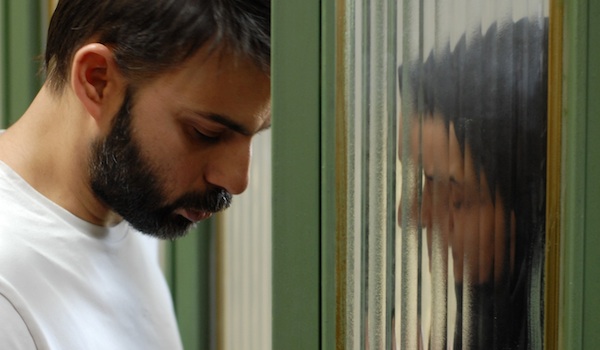A Separation Review
A Separation is an absolute tour-de-force of storytelling. Long after the credits have rolled, I still have hard time comprehending how writer/director Asghar Farhadi managed to fit so much into just two hours. The film touches on a number of potentially melodramatic issues with real clarity and poise, and the cultural differences between the characters and us just enhance our interest in what’s happening to them. It’s a masterful piece of filmmaking, and one that’ll stay with you for a while.
Nader (Peyman Maadi) and Simin (Leila Hatami) are our main characters, and they’ve decided to get a divorce. Simin wishes to move to America to give their only daughter, Termeh (Sarina Farhadi), more opportunities than she’ll be afforded in their native Iran. Nader, however, won’t go. His father was recently stricken with Alzheimer’s and he’s obligated to care for him. Though these two are generally agreeable and relatively forward-thinking, this issue wedges them apart in seemingly irreparable ways.
But it’s the aftermath of this separation that moves the film forward. A now single Nader hires a woman, Razieh (Sareh Bayat), to care for his father during the day. She does it for one day but has number of issues with the arrangement. She travels a long way to do it, and she’s forced to take Nader’s father to the bathroom (which makes her, a married woman, uncomfortable). But the biggest complication is that she’s pregnant and her husband, Hodjat (Shahab Hosseini), doesn’t know she’s working in the home of another man.
One day, Nader returns home early to find Razieh gone, some money missing, and his father passed out and tied to the bed. When the woman gets in, he’s understandably furious. She needed to run an errand, she says. But the ensuing shouting match ends with Nader shoving her (somewhat gently) out the door. She falls down the stairs, and the next day, Nader is arrested. Murder is the charge, for Razieh lost her baby, and the two families take their extraordinarily complicated problems to the Iranian courts.
Yes, A Separation is quite dense. There’s a lot of set-up necessary for the viewer to understand the relationships and how the consequences of both the separation and the confrontation will reverberate throughout this small group of people. Will this little shove mean Termeh and her mother end up in America? Could Razieh also go to jail (for negligence)? Her husband (for insolence)? Then, there’s the questions about the real cause of the termination of Razieh’s pregnancy. Where exactly did she go that day? And could her husband’s very short temper have caused him to abuse her after finding out about her work? These would have been incredibly complex issues and questions in, say, an American suburban drama. In the hectic, overcrowded Iranian courts, the film takes on a whole other level of confusion and complexity. In this way, Tehran is itself one of the most important characters in this story.
It should come as no surprise that a film like this (and one that’s been so universally praised) features extraordinary acting. Of all the great, authentic performances (and there are many), I think Peyman Maadi’s is the strongest. Overall, he’s a good man. He’s struggling to do the best he can after being thrown for a loop when his wife leaves him, and this pressure causes him to make one mistake. And he’s trying to show his daughter what’s right and what’s wrong, but then he chooses to lie to the judge in order to protect himself. The film ultimately comes down to deciding to do what’s right and what’s easy. This question is embodied most in Nader, and Maddi does an astounding job bringing his character’s struggle with it to life.
A Separation has been acknowledged by countless critics groups and is a frontrunner to earn an Oscar nomination for Best Foreign-Language Feature. It deserves all of this attention, and more. It’s a relatively accessible motion picture, though general audiences are, of course, subtitle-phobic. I hope it gets an audience, for it’s a film that deserves robust discussion and debate.
















